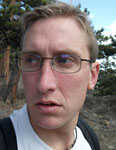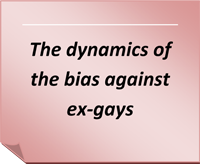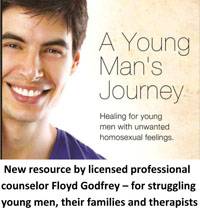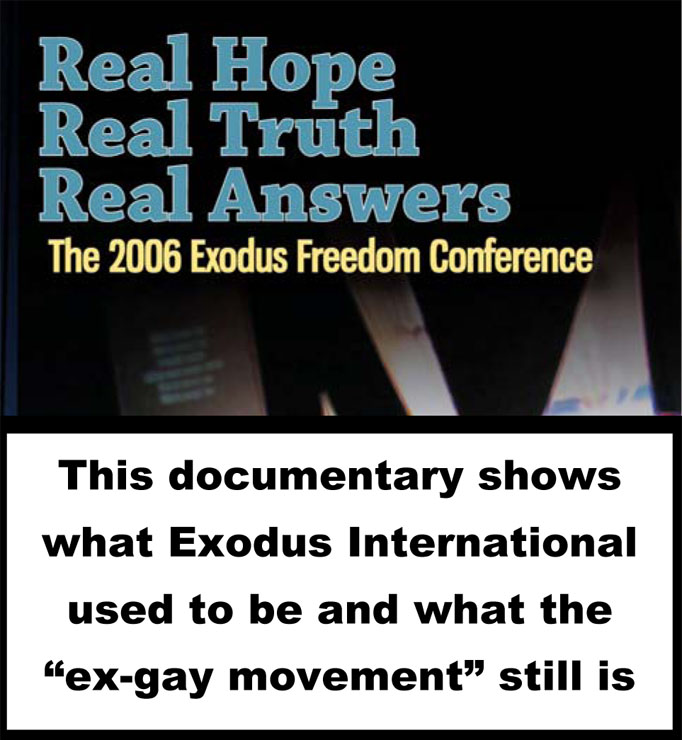Why Uganda proposed criminal penalties to curb homosexuality
By Thomas Coy
Recently a statement was issued by the National Association of Social Workers of Uganda on Uganda’s Anti-Homosexuality Bill. The statement is a well-reasoned rationale supporting the bill. Exodus International President Alan Chambers commented on the statement saying that “the NASWU seems genuinely concerned in helping those struggling with same-sex attraction,” although “the organization fails to see that Uganda’s Anti-Homosexuality Bill of 2009–as any legislation that criminalizes homosexuality–does more to hurt than help homosexuals.”
Exodus International, the largest ex-gay ministry in the world, has played a leading role in trying to stop the bill’s criminal penalties for consensual adult homosexual sex. Nevertheless, the liberal media has propagated the gay viewpoint that the Ugandan bill is the product of hatred stirred up by Christian conservatives.
I would like to argue that Christian morality is not responsible for NASWU endorsing criminal penalties for homosexual behavior. NASWU’s stated purpose for preparing the statement is “to ensure that Uganda and other nations in Africa and around the world develop appropriate policy responses to the issue of homosexuality … free of political influence.”
The NASWU built their position on facts that the western world has chosen to ignore. They point out that the Kinsey studies, which liberalized moral norms in the West, were fraudulent; “Kinsey had intentionally skewed his data to support his “political” views about homosexuality.” In the late 1940s Kinsey falsely reported that 10 percent of the population was homosexual. Kinsey then argued that because homosexuality was so prevalent, it needed to be accepted as normal behavior. Statistical studies of sexuality that followed the Kinsey study showed that less than two percent of the population was homosexual.
The NASWU statement correctly mentions that homosexuality was removed from the Diagnostic and Statistical Manual of Mental Disorders in 1973 because of gay political pressure and maneuvering. NASWU also recognized that science has not shown that homosexuality is a genetic condition, therefore the NASWU statement makes the valid argument that it is “wrong to compare homosexuality with immutable (unchangeable) characteristics like skin color or gender or physical disability.”
The gay influence in western professional and academic organizations has stymied the objective research of homosexuality since 1973. Irving Bieber, Charles Socarides and other psychiatrists had uncovered the mystery of homosexual causation, pioneered the treatment of homosexuality and documented sexual orientation change. Bieber and Socarides had even recommended nurturing roles for parents and educators that could prevent most cases of homosexuality. As the gay influence turned into political power after 1973, Bieber, Socarides, and the known clinical science on homosexuality were removed from medical textbooks.
From the clinical science Bieber and Socarides had hypothesized that any society can curb homosexuality by helping its children identify with the same sex in healthy non-sexual ways. The clinical science showed that the same-sex parent was especially important in helping the child want to identify as a heterosexual man or heterosexual woman. It was suggested that school teachers were in an opportunistic position to help children identify with their peers as boys or girls. This group of psychiatrists also offered hope to the adolescent or adult with unwanted homosexual attractions. They had helped a significant number of homosexuals change their sexual orientation through psychotherapy. In truth, the clinical science of homosexuality was making major advancements when liberal medical professionals in positions of authority suppressed it.
Social workers in Uganda would have had adequate information on the causes, treatment, and prevention of homosexuality, if academia and professional organizations in America had continued to build upon the clinical science after 1973. Instead, in 2010, Ugandan social workers saw criminal penalties against homosexual behavior as the only way to curb homosexuality and protect the traditional family.
There was a particular message in the NASWU statement that America should heed. “Ethical practice also demands that where professional errors have been made in the past, they be recognized so that corrective action can be taken for the greater good of society.” The misinformation on homosexuality that is disseminated in America needs to be recognized and corrected. It was and is unethical for academia and science-based organizations to ignore the clinical evidence on the causation, treatability, and prevention of homosexuality. The assault on Bieber, Socarides, and their clinical research in the 1970s was an injustice that has compounded over the years. Almost forty years later, the suppression of the clinical science has indirectly caused a frustrated Uganda to propose criminal penalties for consensual homosexual behavior.




